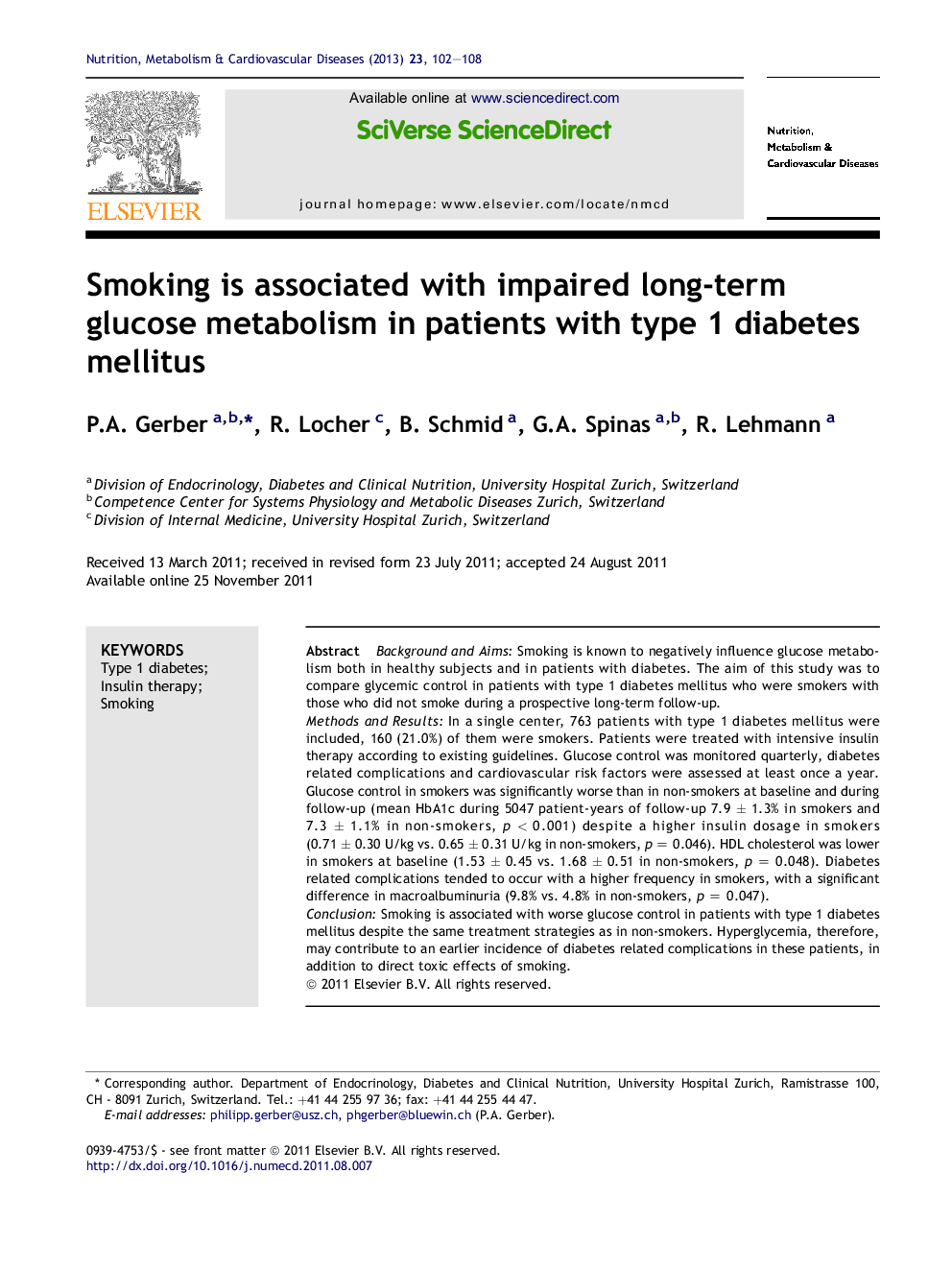| Article ID | Journal | Published Year | Pages | File Type |
|---|---|---|---|---|
| 3002025 | Nutrition, Metabolism and Cardiovascular Diseases | 2013 | 7 Pages |
Background and AimsSmoking is known to negatively influence glucose metabolism both in healthy subjects and in patients with diabetes. The aim of this study was to compare glycemic control in patients with type 1 diabetes mellitus who were smokers with those who did not smoke during a prospective long-term follow-up.Methods and ResultsIn a single center, 763 patients with type 1 diabetes mellitus were included, 160 (21.0%) of them were smokers. Patients were treated with intensive insulin therapy according to existing guidelines. Glucose control was monitored quarterly, diabetes related complications and cardiovascular risk factors were assessed at least once a year. Glucose control in smokers was significantly worse than in non-smokers at baseline and during follow-up (mean HbA1c during 5047 patient-years of follow-up 7.9 ± 1.3% in smokers and 7.3 ± 1.1% in non-smokers, p < 0.001) despite a higher insulin dosage in smokers (0.71 ± 0.30 U/kg vs. 0.65 ± 0.31 U/kg in non-smokers, p = 0.046). HDL cholesterol was lower in smokers at baseline (1.53 ± 0.45 vs. 1.68 ± 0.51 in non-smokers, p = 0.048). Diabetes related complications tended to occur with a higher frequency in smokers, with a significant difference in macroalbuminuria (9.8% vs. 4.8% in non-smokers, p = 0.047).ConclusionSmoking is associated with worse glucose control in patients with type 1 diabetes mellitus despite the same treatment strategies as in non-smokers. Hyperglycemia, therefore, may contribute to an earlier incidence of diabetes related complications in these patients, in addition to direct toxic effects of smoking.
